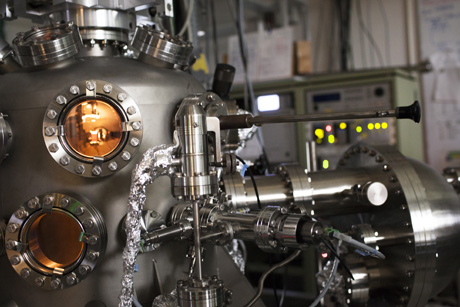SURFCAT - Surface Physics & Catalysis
The main objective of SURFCAT is to investigate the fundamental relation of surfaces reactivity and activity with perspctive of developing new and more efficient catalysts.

The main objective of SURFCAT is to investigate the fundamental relation of surfaces reactivity and activity with perspctive of developing new and more efficient catalysts.
